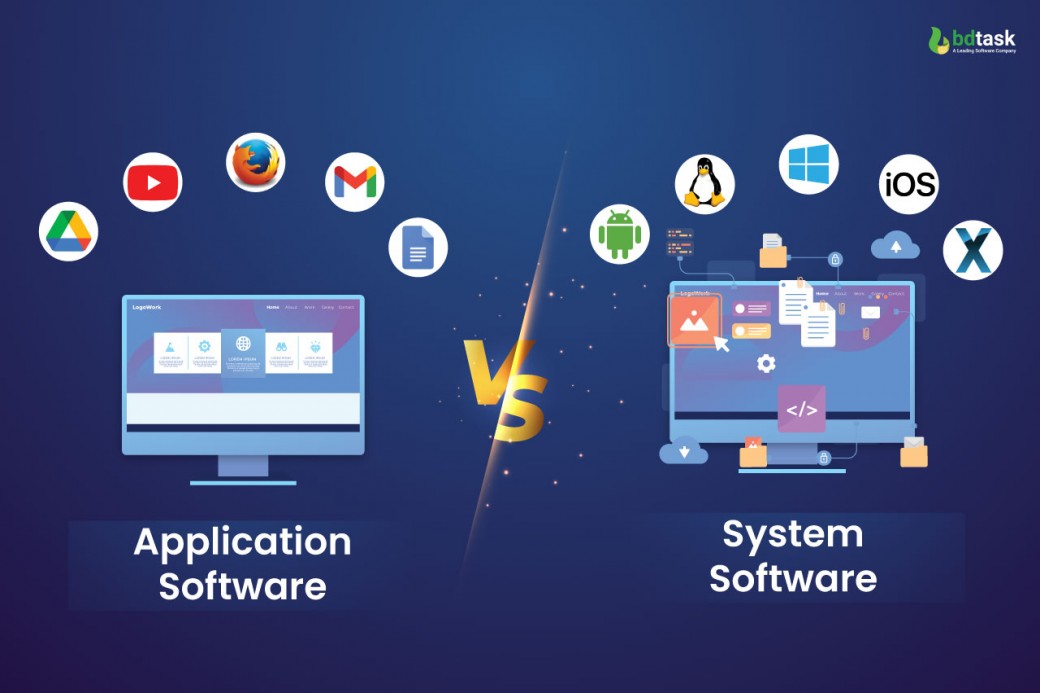Application Software vs. System Software
Application software and system software are two broad categories of software that serve different purposes within a computer system.
Application Software
- Purpose: Designed to perform specific tasks or functions for end-users.
- Examples: Word processors, spreadsheets, web browsers, games, media players, and database management systems.
- Focus: User-oriented, providing tools and interfaces for various tasks.
- Dependency: Relies on the underlying system software for its operation.
System Software
- Purpose: Manages the computer's hardware and software resources.
- Examples: Operating systems (e.g., Windows, macOS, Linux), device drivers, firmware, and utilities.
- Focus: System-oriented, providing the foundation for other software to run.
- Dependency: Essential for the functioning of application software.
Key Differences
| Feature | Application Software | System Software |
|---|---|---|
| Purpose | User-oriented tasks | System management |
| Examples | Word processors, games, etc. | Operating systems, device drivers, etc. |
| Dependency | Relies on system software | Forms the foundation for application software |
In summary, application software is designed to meet specific user needs, while system software is responsible for managing the computer's resources and providing the underlying infrastructure for applications to run. Both types of software are essential for the operation of a computer system.





0 Comments